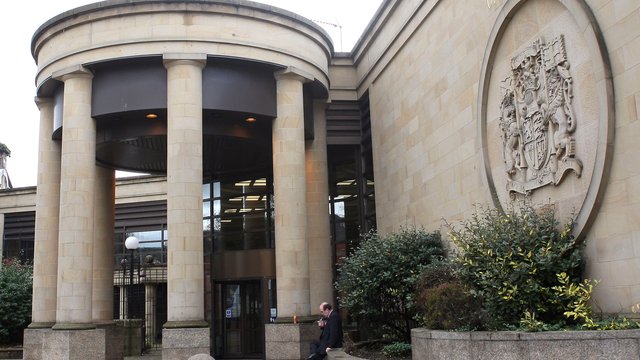On Air Now
Capital Breakfast with Fat Brestovci & Amy Meisak 6am - 10am
19 April 2018, 11:26 | Updated: 19 April 2018, 11:27

A juror has been jailed for six years after being found guilty of accepting a bribe in the first prosecution of its kind in Scotland.
Catherine Leahy, 62, served on a jury in a drug trafficking and money laundering trial which returned a not proven verdict in April 2016 following three days of deliberation at the High Court in Glasgow.
A police investigation was launched after information was passed to Crown Office staff regarding an alleged bribe to a juror.
Police then used covert audio surveillance to capture recordings of Leahy talking with a family member at her Glasgow home about the allegations against her.
Her trial at the High Court in Glasgow heard Leahy had nearly £3,000 paid in four instalments into her bank account between April and June 2016, the Crown Office said.
Prosecutors linked the bank payments to the charge against Leahy.
At the High Court in Glasgow last month, Leahy was found guilty of agreeing to receive money for not properly carrying out her role as a juror.
She is the first juror to be prosecuted under the Bribery Act 2010.
Leahy was sentenced to six years in jail at the High Court in Edinburgh on Thursday, the Crown Office said.
Liam Murphy, procurator fiscal for Specialist Casework, said: "The role of the jury sits at the heart of our criminal justice system and is fundamental to our rule of law.
"This is the first prosecution of its kind in Scotland which shows that cases of jury interference are exceptionally rare.
"Leahy took advantage of a position of public responsibility for financial gain without any regard to the consequences.
"The prosecution against Leahy was built on a thorough and complex investigation by Police Scotland using covert surveillance to uncover the true nature of the offence."
Prosecutors are now giving further consideration to the circumstances of the original trial in which Leahy served as a juror.
The Crown can ask the court for authority to bring a fresh prosecution in cases where a person was previously acquitted in certain circumstances, including when an offence against the course of justice in the original trial is considered to have been committed.